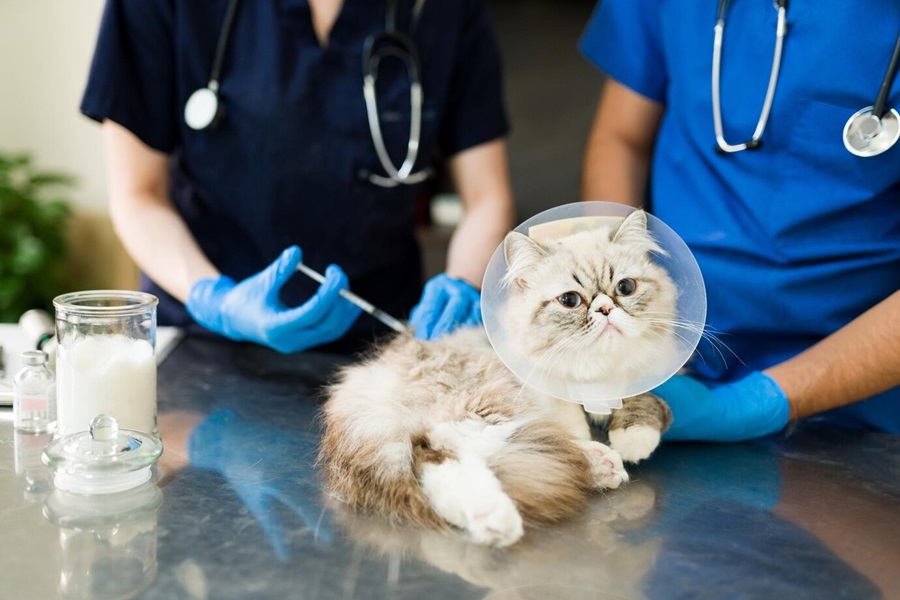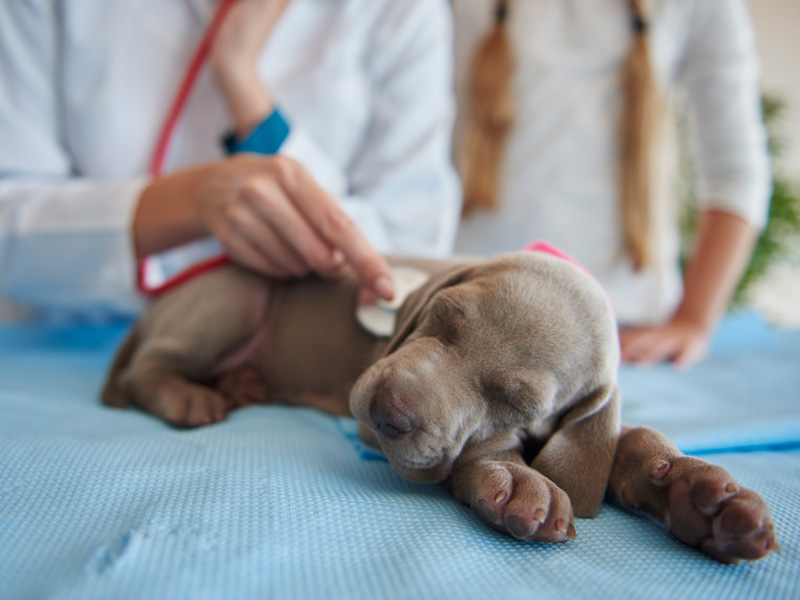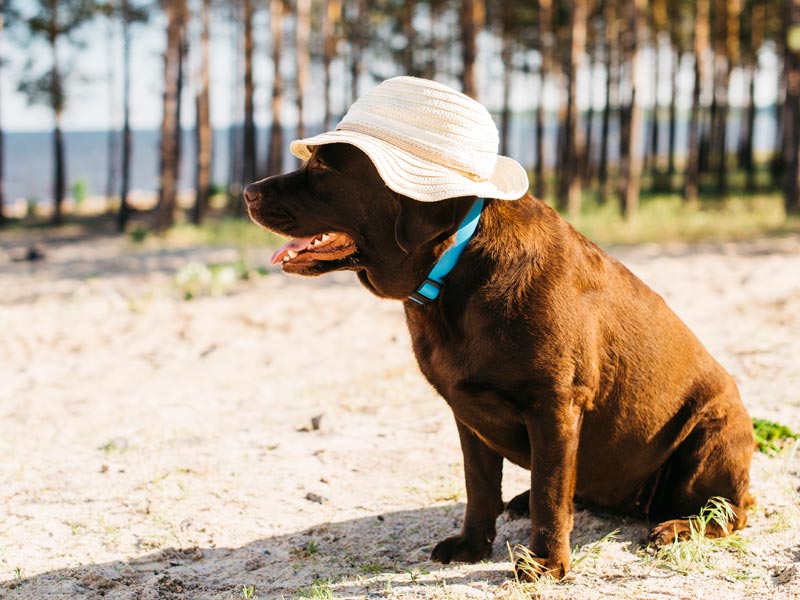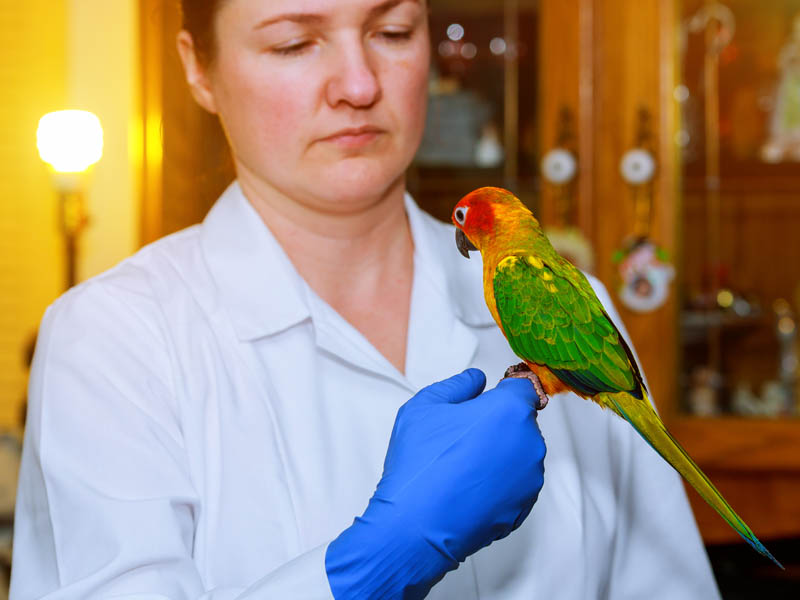Why Every Dog Needs the Canine Parvovirus Vaccine: A Comprehensive Guide

Introduction of Canine Parvovirus (CPV):
Identified first in the late 1970s, Canine Parvovirus (CPV) is proven as a highly contagious and deadly disease. This vaccination is a combination of DHPP or DAPP vaccine. Canine parvovirus vaccine also protects dogs against any distemper, hepatitis, and parainfluenza. Usually, it affects dogs of any age but rapidly spreads among young puppies and unvaccinated ones. As a responsible owner, taking proper measures can prevent canine parvovirus and protect dogs against this fatal disease.
What are the Symptoms of Canine Parvovirus?
It spreads through infected dogs, feces, and contaminated surfaces, primarily attacks dogs’ gastrointestinal tract and immune system. Some of the common canine parvovirus symptoms are:
- Severe vomiting, that is persistent and can lead to many complications (like dehydration)
- Loss of appetite, where dogs avoid eating or drinking (which can worsen their condition)
- Lethargy, where dogs become unresponsive and extremely weak
- Fever, dogs' body temperature fluctuates regularly
- Bloody diarrhea, foul-smelling stools with fluid loss
Dog Vaccination Importance
Veterinarians recommend canine parvovirus vaccination for the puppies between six and eight weeks of age. This must be followed by booster shots every three to four weeks until they reach 16 weeks old.
Dog Immunization Schedule
To maintain the dog’s overall health, it is essential to ensure that we follow the dog vaccination routine. Veterinarians provide specific medications and vaccinations based on the breed, lifestyle, and potential risks. Regular checkups help you monitor your dog’s well-being and detect early signs of illness (if any exist).
What are the Benefits of Canine Parvovirus Vaccine?
- Prevention of deadly disease: Unvaccinated dogs are at high risk of severe parvovirus infection, with a high mortality rate; especially puppies. Canine parvovirus vaccine can reduce the risk of this infection.
- Protection of the community: Vaccinating your dog not only saves its life, but also helps to prevent outbreaks among other dogs. This way, you can reduce the spread of the parvovirus.
- Cost-Effective Preventative Measure: Treatment for parvovirus can be extremely expensive, with hospital stays. Dogs are given medications and IV fluids and may need intensive care. So, it is better to go with the canine parvovirus vaccine which is affordable and saves the pet owners a financial burden.
- Essentials for Puppies: Puppies develop their immune systems as they grow, so they are more susceptible to parvovirus. It is suggested to receive a parvo vaccine for dogs and build strong immunity.
- Required for boarding and socialization: To prevent disease outbreaks, we need to submit the proof of vaccination of our pets. Usually, it is asked at pet daycares, training classes, boarding facilities, and dog parks. Vaccination and preventing parvovirus in dogs is essential to keep pets socialized.
Myths & Misconceptions about the Canine Parvovirus Vaccine
Despite the clear benefits of parvovirus vaccination, people still have some misconceptions and a few common myths:
- Myth 1: "I don’t take my dog outside so there is no need for a vaccine" – Even if you don’t take your dogs outside, there is still a chance of the virus coming home through other pets, shoes, or clothes. It is essential to understand the dog vaccination importance.
- Myth 2: "Every dog has natural immunity" – Some puppies may get immunity from their mother’s milk which is temporary. Getting vaccination ensures long-term immunity preventing parvovirus in dogs.
- Myth 3: "Vaccines may be harmful and dangerous to my dog" – Scientists release vaccination after rigorous testing to ensure the safety of pets. Therefore, there will be no side effects.
What to Expect After Vaccination
Most dogs tolerate the vaccine with minimal side effects. However, some may experience mild reactions such as:
- Mild fever
- Temporary soreness at the injection site
- Low energy for a day or two
However, there is a rare chance of any severe allergic reactions. But if it prevails, it should be addressed immediately to the veterinarian.
Conclusion
The canine parvovirus vaccine protects dogs from a highly contagious and potentially fatal disease. So, follow the dog immunization schedule and prevent long-term medical expenses by extending the dog’s lifespan. Ensure a long and healthy life by understanding the dog vaccination importance. Prioritize canine parvovirus vaccine as responsible pet ownership and prevent the spread of this dangerous disease.
2025-02-26 11:33:37 | Administrator
Recent Blogs

Identifying and Managing Infectious Diseases in Cats: Symptoms and Treatments
2025-03-28 07:33:14


Protecting Your Dog from Summer Heat Breed-Specific Tips
2025-03-18 12:47:51

Why Every Dog Needs the Canine Parvovirus Vaccine: A Comprehensive Guide
2025-02-26 11:33:37

Keeping Your Avian Companion Healthy: Identifying and Treating Bird Illnesses
2024-04-12 08:06:38

Spotting Babesia in Cats: Symptoms, Diagnosis, and Treatment
2024-04-12 08:06:32

Pawsitive Checkups: Why Routine Vet Visits are Essential for Your Dog
2024-04-12 08:06:23






